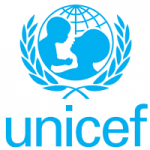By Asma’u Ahmad
The United Nations Children’s Fund (UNICEF) on Wednesday raised alarm over impending malnutrition and famine in some Local Government Areas of Borno states.
UNICEF Chief of Water, Sanitation and Hygiene (WASH), Mr. Kanaan Nadar, who spoke with the News Agency of Nigeria (NAN), said that insecurity and famine were part of the challenges being faced by the agency.
“UNICEF is supporting the state government to have a coordinated response, the challenge has been security, because it affects accessing some of those communities in Borno to provide basic needs.
“A high number of LGAs in Borno are in need of food emergency in the southern parts, a lot are facing food emergency and are at risk of famine,” he said.
According to him, UNICEF is the co- chair of emergency response group with the ministry of Water Resources.
He said the agency was also supporting IDPs eagerness to return to their various communities in Borno, Yobe and Adamawa states.
According to him, emergency response in humanitarian situations in the North East is a necessary step toward meeting the needs of increasing IDPs in these states.
He said in 2016, the agency drew a humanitarian response plan for Nigeria, which had identified that 3.6 million people were in need of WASH response.
“The plan for 2017 will target two million persons, which include those in areas of return and IDPs living in communities, the total value of the response is 49.7 million dollars.”
He said in the past, there was the challenge of uncoordinated response, adding that presently, no fewer than 15 NGO partners had been working in various parts of Borno and neighbouring states.
He said the WASH emergency working group in Borno was prioritising LGAs for WASH interventions, health and nutrition, adding that food insecurity led to malnutrition and lack of water aggravated the situation.
“We are also working to have an integrated package in health centres, by responding to water supply, sanitation, hygiene promotion including provision of hygiene kits. Many times, you find out that IDPs do not have anything, so we provide them with buckets, and water purification chemicals, among others,” he added.



